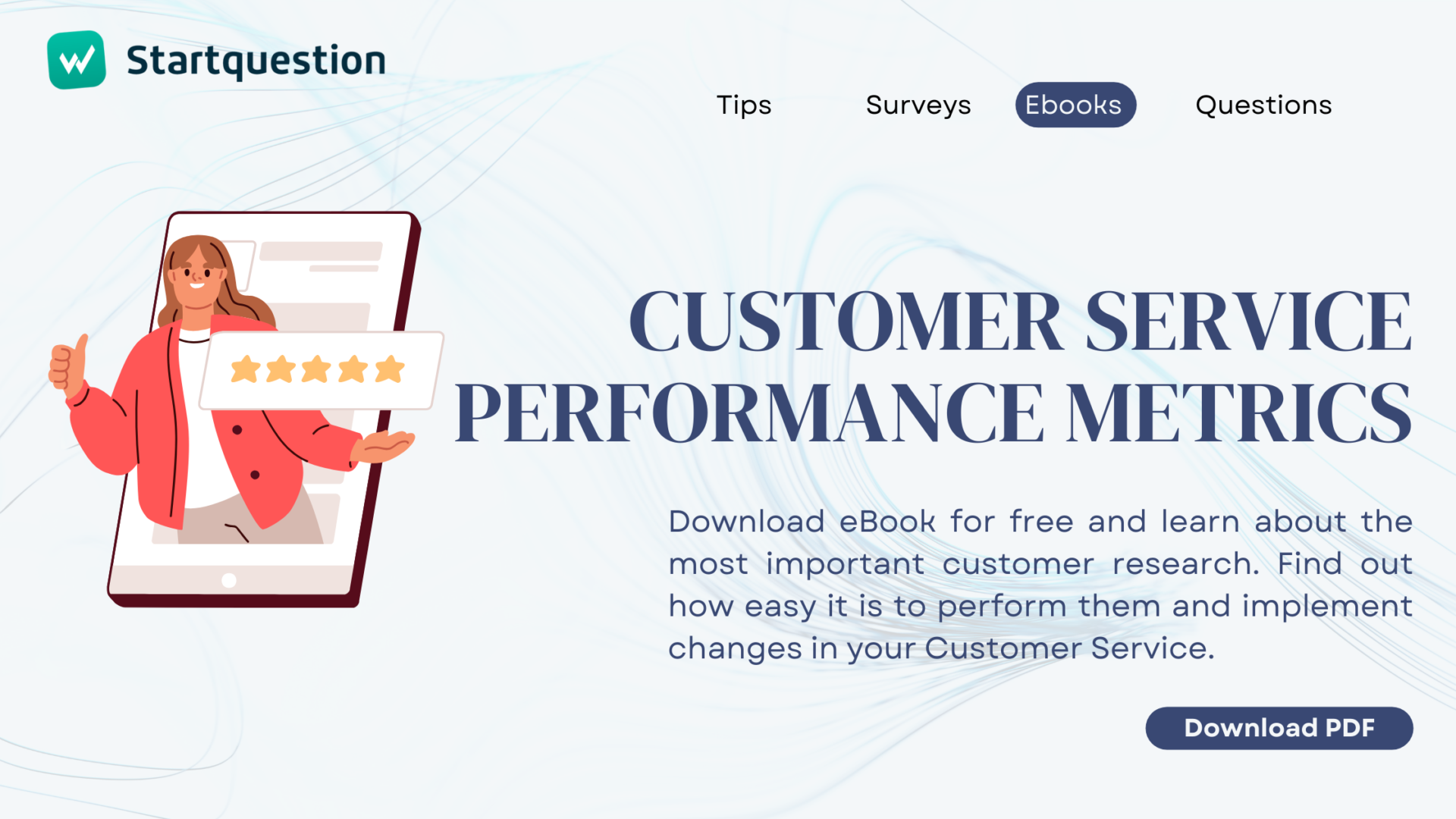The recruiting and hiring process is a chance for the company to expand the team with a valuable employee and to obtain information needed to create its positive image. Not only the potential employees but also the recruiter (or recruiters) should prepare themselves perfectly for the selection of candidates – using the results provided by recruitment satisfaction survey.
It is the employer’s job to take all measures to encourage the most qualified candidates to apply. It is also necessary to implement actions that will improve the organization of recruitment itself, while building a positive image of the company. How to achieve your goals and make your recruiting process great again?
Candidate Experience surveys are becoming more and more popular – this is a simple tool that allows you to get to know opinions on the interview process.
When should you start a study among the employees of your company? How to measure satisfaction and commitment in a team? Why is candidate screening the basis for good recruitment and higher employee engagement? How to ask recruitment survey questions for hiring managers or other specialists?
Who and how do we research in the recruitment survey?
The answer is simple – candidates applying for employment in our company. In order for the recruitment questionnaire to be credible, it must be directed to everyone – both hired and rejected candidates at various stages of recruitment.
The timing of the Candidate Experience survey is important. Choose the right moment taking into account the fact that answers provided before the recruitment results are obtained may not be entirely honest.
It is also important for the study regarding the recruitment process to ensure the anonymity of the respondents. Information that the candidate will be asked to complete the survey should be provided during the hiring process – otherwise, rejected candidates may consider the message from the company as spam or simply ignore it.
Furthermore, a recruitment survey carried out once will not be enough – it’s best to do it regularly, especially after making changes to recruitment processes based on the results obtained in the questionnaires.
Startquestion is a perfect software for Recruitment Satisfaction Survey
Gather feedback via weblink, social media, email, and more. Generate automatic reports and analize all results in one tool.
No credit card required · Cancel any time · GDRP Compilant
What is the best way to research candidate experience and the hiring process?
First of all, it is worth noting that only a well-designed and well-thought-out recruitment survey can generate maximum benefits. Download an eBook to learn about the benefits that can be ensured when completing a study for candidates in the recruitment process and you will receive clear instruction on how to create a survey.
When it comes to the content of the Candidate Experience survey, it seems that NPS is an excellent tool to measure the quality of the recruitment process. It is a method created by Frederick Reichheld, which was initially used to study customer loyalty towards individual brands. The strength of this technique lies in asking one simple but crucial question: Would you recommend applying to this company to a friend? Check out our article if you don’t know how to create the best NPS question.
The Net Promoter Score uses a rating scale from 0 to 10, where 0 = I don’t recommend and 10 = I recommend. Based on the answers provided, the candidates will be assigned to three groups: critics (scores from 0 to 6), neutral groups (from 7 to 8) and promoters (scores 9 and 10). The NPS index is calculated by subtracting the percentage of critics from the promoters. A moderately good result is considered to be anything above 0, and a perfect score above 50.
NPS is not the only ideal tool for researching the whole process – the employer can also confidently use other techniques – recruitment surveys containing open, closed (yes/no) or matrix questions (determining the scale of feelings towards a given phenomenon, e.g. 1 – I did not like it, 5 – I liked it very much). Above all, it is important to create relevant, specific questions from which you can draw as many conclusions as possible.
Good questions are the basis of the Candidate Experience survey
Examples of the recruitment satisfaction survey questions:
- Was the job description included in the job offer the same as the information provided to you during the recruitment meeting?
- Were the recruiters friendly/kind/helpful?
- Are the responsibilities and tasks to be performed clearly explained?
- What did you like/dislike the most about applying to our company?
- In your opinion, was the recruitment result known quickly enough?
- What do you think we should improve in our recruitment processes?
There is also a group of questions that should be avoided in the recruitment survey. These include, for example, questions that suggest an answer, too long, complicated and incomprehensible or not closely related to recruitment (e.g. about products or services provided by the company). The questions should be designed in such a way that the respondent does not have the impression that he/she can provide a good or a bad answer.
An additional, supporting study used as part of the Candidate Experience may be a survey conducted among newly hired employees. This is the time to get more detailed information – what exactly the employee assesses positively, what would change, how efficiently in their opinion the process was conducted, do they think that they received an answer quickly enough, etc. The more information, the more tips for future recruiters.
You should also keep in mind the basic principles of creating a survey – it should not be too long, it should be simple to fill in and contain a description along with instructions. It is also worth taking care of the attractive design. Are you unsure of how to start a survey? Find out how to create a good online questionnaire here.
Ready-to-use examples of employees and HR surveys
What information will we get from the recruitment satisfaction survey and how to use it?
According to a 2016 Talent Board study, as many as 73% of candidates were not asked at all for their opinion on the recruitment process. Currently, the awareness of the benefits of creating this type of survey is constantly growing. It’s worth highlighting some of them.
Firstly, even negative results provide important information. They will allow you to take steps to achieve seamless recruitment process and better candidate experience. Why is it important? Let’s clarify that:
– candidates dissatisfied with how the recruiter treated them when applying for a job will share their negative experiences with others, which may reduce the number of applicants,
– negative experiences will contribute to creating a bad image of the entire brand – an unfairly or rudely treated candidate will not use its services and will not recommend it to friends,
– poorly conducted recruitment takes precious time and generates unnecessary costs
– each dissatisfied candidate (e.g. one who did not receive information about the recruitment results) is also a potentially lost customer.
Secondly, positive feedback is something you can be proud of. There is no greater reason to be proud than good feedback obtained from a group of rejected candidates. Respondents who can share their observations will surely remember your company better.
According to a study conducted by Erecruiter from 2017 35% of employers do not see the need to conduct a candidate opinion survey, and 41% did not have the time or funds for such a survey.
Thirdly, candidates like to be asked for their opinion – they appreciate when they are interested in their opinion or when they devote their time and attention, even if they have not been accepted for a given position. The worst behavior is to ignore applicants and deprive them of a chance to indicate why they feel unfair or mistreated. Even with a neutral opinion, asking questions will be much better compared to companies that were not interested in the candidate’s feelings at all. This is one of the simpler ways to gain a competitive advantage. According to Mystery Applicant research, only 16.7% of enterprises know about the factors that motivate candidates to apply for their job offers.
This is clearly seen in the statistics provided by Lever and Career Arc:
- 83% of candidates claim that a negative impression from recruitment can change their way of thinking about the organization – even if they had positive feelings about it before.
- people who received information about the recruitment results are willing to re-apply to the same company for next job opening 3.5 times more often than those that were left without feedback,
- 72% of people having negative impressions of the recruiting process declare that they will share them on websites and portals devoted to job search,
- without a recruiter reply, 85% of candidates assume that it is a computer program, not a human, that selected applicants (which may translate into a decrease in confidence in the organization).
Job Application Questionnaire Sample (Survey Template)
The research also showed that only 46% of employers regularly streamline and improve their recruitment process based on information obtained from candidate surveys.
You don’t have to belong to this group – stay ahead of the competition and start candidate experience studies using professional survey sofware like Startquestion. Try our ready-to-use recruitment satisfaction survey template to make your hiring process shine like a diamond.
Remember that recruitment satisfaction is just a first of many HR studies that make help your organization. With correct questionnaire template you may collect data not only from your new employees and job seekers, but also about onboarding process, employee satisfaction, training evaluation, and much more.




